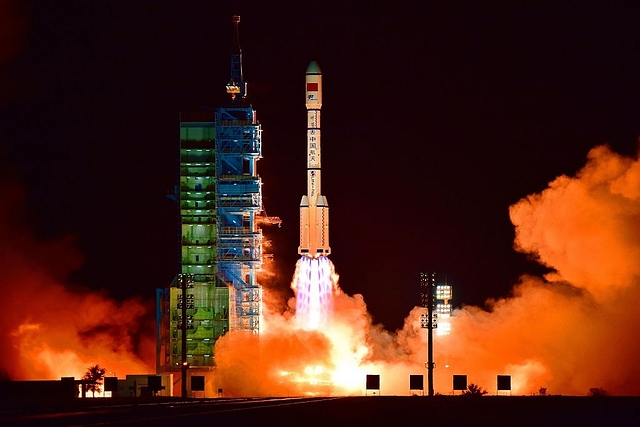
China Launches Its Longest Space Mission, Plans To Have The Only Active Space Station By 2024
As a part of its a broader plan to have a permanent manned space station in service by around 2022, China today launched a manned space mission into space. The mission, said to be China’s longest, will have two astronauts on board spending two months in a space laboratory.
The Long March rocket, which is carrying the astronauts, was launched at 7:30 am (2330 GMT) from the remote launch site in Jiuquan, in the Gobi desert located in China’s northwestern part. The rocket is carrying three experiments designed by Hong Kong middle school students and selected in a science competition, including one that will take silk worms into space.
A part of China’s space station, the Tiangong 2 space laboratory was sent into space last month. The astronauts will dock with this lab. In a manned space mission in 2013, three Chinese astronauts spent 15 days in orbit and docked with a space laboratory, the Tiangong 1.
While the west has expressed concerns over China’s increasing space capabilities and its potential use in denying access to other nations, China has iterated that its space program is for peaceful purpose.
China may be the only country by 2024 to have an active space station. The currently functional International Space Station (ISS), which is a joint project among five participating space agencies from different countries, is set to retire in 2024.
According to Xinhua News, the 20-tonne combination space station will be sent into orbit by the year 2022.
India, which recently became the first country to send a probe to Mars in the first attempt, is planning its first manned space mission in 2022.